
New Year's Day is observed on January 1, the first day of the year on the modern Gregorian calendar as well as the Julian calendar used in ancient Rome. With most countries using the Gregorian calendar as their main calendar, New Year's Day is the closest thing to being the world's only truly global public holiday, often celebrated with fireworks at the stroke of midnight as the new year starts. January 1 on the Julian calendar currently corresponds to January 14 on the Gregorian calendar, and it is on that date that followers of some of the Eastern Orthodox churches celebrate the New Year.
In cultures which traditionally or currently use calendars other than the Gregorian, New Year's Day is often also an important celebration. Some countries concurrently use the Gregorian and another calendar. New Year's Day in the alternative calendar attracts alternative celebrations of New year.
- Telugu New Year (Ugadi), Kannada New Year (Yugadi) is celebrated in March (generally), April (occasionally). Traditionally, it is celebrated as Chaitram Chaitra Shuddha Padyami in parts of Andhra Pradesh and Karnataka to mark the event of New Year's Day for the people of the Deccan region of India.
It falls on a different day every year because the Hindu calendar is a lunisolar calendar. The Saka calendar begins with the month of Chaitra (March–April) and Ugadi/Yugadi marks the first day of the new year. Chaitra is the first month in Panchanga which is the Indian calendar. Panchangam (almanac), is read in temples to mark the start of the Year. (For more information see http://en.wikipedia.org/wiki/Ugadi)
- Chinese New Year is celebrated in many countries around the world. It is the first day of the lunar calendar and is corrected for the solar every three years. The holiday normally falls between 20 January and 20 February. The holiday is celebrated with food, families, lucky money(usually have red color outside), and many other red things for good luck. Lion and dragon dances, drums, fireworks, firecrackers, and other types of entertainment fill the streets on this day.
- Sinhalese New Year is celebrated in Sri Lankan culture predominantly by the Sri Lankan Sinhalese, while the Tamil New Year is celebrated alongside it by Sri Lankan Tamils. The Sinhalese New Year (aluth avurudda), marks the end of harvest season, by the month of Bak (April) between April 13th and April 14th. There is an astrologically-generated time gap between the passing year and the New Year, which is based on the passing of the sun from the Meena Rashiya (House of Pisces) to the Mesha Rashiya (House of Aries) in the celestial sphere. The astrological time difference between the New Year and the passing year (nonagathe) is celebrated with several Buddhist rituals and customs that are to be concentrated on, which are exclusive of all types of 'work'. After Buddhist rituals and traditions are attended to, Sinhala and Tamil New Year-based social gatherings and festive parties with the aid of firecrackers, and fireworks would be organized. The exchange of gifts, the cleaning of the house, the lighting of the oil lamp, making kiribath (Milk rice), and even the Asian Koel are significant aspects of the Sinhalese New Year. (For more information see http://en.wikipedia.org/wiki/Sinhalese_New_Year)
- Tamil New Year (Puthandu) is celebrated on 13th April or 14th April. Traditionally, it is celebrated as Chiththirai Thirunaal in parts of Tamilnadu to mark the event of the Sun entering Aries. Panchangam (almanac), is read in temples to mark the start of the Year.
- Thai New Year is celebrated on 13th April or 14th April and is called Songkran in the local language. People usually come out to splash water at each other to reduce the heat, which is at its most intense during this time of the year in Thailand.
- Hindu New Year falls at the time and date the Sun enters Aries on the Hindu calendar. This is normally on 14 April or 15 April, depending on the leap year. The new year is celebrated by paying respect to elders in the family and by seeking their blessings. They also exchange tokens of good wishes for a healthy and prosperous year ahead.
- Nowruz marks the first day of spring and the beginning of the year in Iranian calendar. It is celebrated on the day of the astronomical vernal equinox, which usually occurs on March 21 or the previous/following day depending on where it is observed. Nowruz has been celebrated for over 3,000 years by the related cultural continent. The holiday is also celebrated and observed by many parts of Central Asia, South Asia, Northwestern China, Crimea and some groups in the Balkans. As well as being a Zoroastrian holiday and having significance amongst the Zoroastrian ancestors of modern Iranians, the same time is celebrated in the Indian sub-continent as the new year. The moment the Sun crosses the celestial equator and equalizes night and day is calculated exactly every year and Iranian families gather together to observe the rituals.
- Islamic The Hijri New Year, also known as Islamic new year (Arabic: رأس السنة الهجرية Ras as-Sanah al-Hijriyah) is the day that marks the beginning of a new Islamic calendar year. New Year moves from year to year because the Islamic calendar is a lunar calendar.The first day of the year is observed on the first day of Muharram, the first month in the Islamic calendar.
- Israel is one country that uses the Gregorian calendar but does not formally celebrate the New Year's holiday — mainly due to objections by religious parties on the holiday's non-Jewish origins. However, there are Israeli Jews who partake in some sort of celebration. The date of the Jewish new year is celebrated on Rosh Hashanah no matter where the location.
- Japanese New Year in Japan is celebrated on January 1 because the Gregorian calendar is now used instead of the Chinese calendar.
- Korean New Year called Seolnal is the first day of the lunar calendar. Koreans also celebrate solar New Year's Day on January 1 each year, following the Gregorian Calendar. People get a day off that day while have minimum three days off on Lunar New Year. People celebrate New Year's Day by preparing food for the ancestors' spirits, visiting ancestors' graves, then playing Korean games such as Yutnol'i {say: yun-no-ree} with families. Young children give respect to their parents, grandparents, relatives, and other elders by bowing down in a traditional way and are given good wishes and some money by the elders. Families enjoy the new years also by counting down until 12:00 a.m., which would be New Year's Day.
- Ethiopian New Year called Enqutatash. It is celebrated on September 11 or September 12 based on the leap year. Ethiopia uses its own ancient calendar. However some say it has connection with Julian calendar. The new year is the end of the summer season and where you see natural flowers every where in the country.

New Years Eve
January 1 represents the fresh start of a new year after a period of remembrance of the passing year, including on radio, television and in newspapers, which starts in early December in countries around the world. Publications have year-end articles that review the changes during the previous year. In some cases publications may set their entire year work alight in hope that the smoke emitted from the flame brings new life to the company. There are also articles on planned or expected changes in the coming year.This day is traditionally a religious feast, but since the 1900s has also become an occasion to celebrate the night of December 31, called New Year's Eve. There are fireworks at midnight at the moment the new year arrives; watchnight services are also still observed by many.
First Night is an artistic and cultural celebration on New Year's Eve, taking place from afternoon until midnight. Some cities have all their events during the celebration outside, but some cities have events that are hosted indoors by organizations in the city, such as churches and theaters. Since it happens on New Year's Eve, First Night celebrations are actually held on the last night of the old year. The real first night occurs on New Year's Day. First Night celebrates a community's local culture, often featuring music, dance, comedy, art, fireworks and, in some cities, ice sculptures and parades.
First Night began in Boston in 1976 by a small group of artists who sought an alternative way of celebrating New Year's Eve, creating an event where the consumption of alcohol is banned.[1] Soon other surrounding communities started their own First Night celebrations. By the 1990s, the First Night Boston event was attracting works by over a thousand artists,[2] and in 2006 more than a million visitors were in attendance.[1]
In Boston, live coverage of the final part of First Night, including the countdown to midnight and fireworks over Boston Harbor that begin at the stroke of midnight, is broadcast by WBZ-TV; the station's parent company CBS is an official sponsor.
During the Late 2000s Recession, several First Night celebrations faced financial difficulty, being scaled back or canceled, while others found the funding to continue.[3][4][5] Alternatively, other celebrations have sprung up. For example, in 2003, First Night Providence announced they would not be able to continue their celebration which had been continuing for 19 years. A group of local artists banded together to create Bright Night Providence,[6] an artist-run New Year's Eve celebration based on the idea and spirit of First Night.
Despite changing economic conditions the First Night model continues to evolve and thrive as a positive force in the arts not only in Boston, but throughout the United States and Canada. First Night USA is the national off-shoot of the parent organization, tasked with engaging stakeholders, opening up communications and creating networks that share ideas and best practices with the numerous First Night licensed events spread throughout the United States.
In addition to the New Year's festival, First Night is deeply involved in Boston's art and culture communities via the Neighborhood Network. Started in 1994, the Neighborhood Network partners First Night with 25 community organizations throughout Boston's neighborhoods- including Dorchester, Mattapan, Jamaica Plain and South Boston- to engage young people and families in creative workshops with artists and educators. In 2000 First Night launched Summer Beat, a series of summer camp like dance and music workshops spread around the city of Boston.











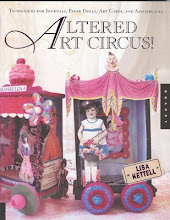



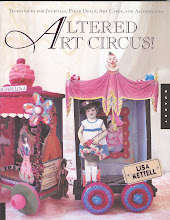




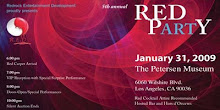

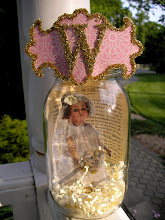


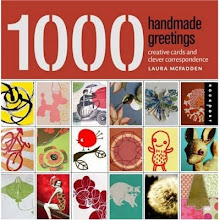






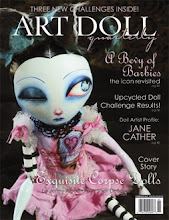

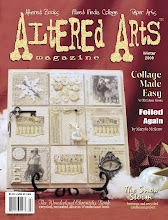




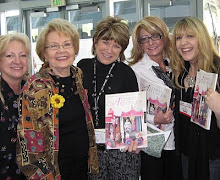

















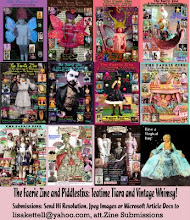






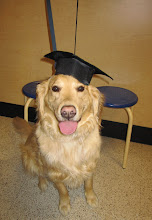

No comments:
Post a Comment